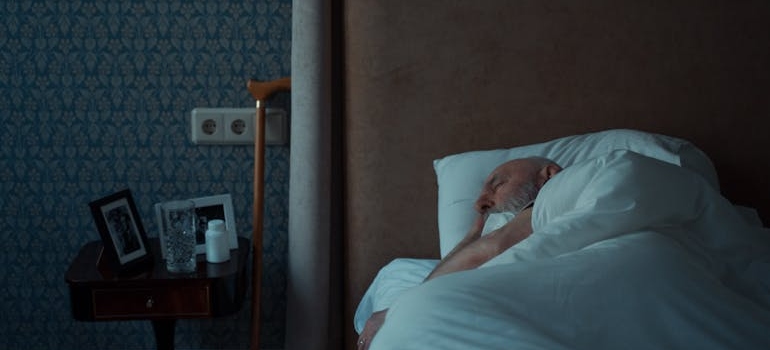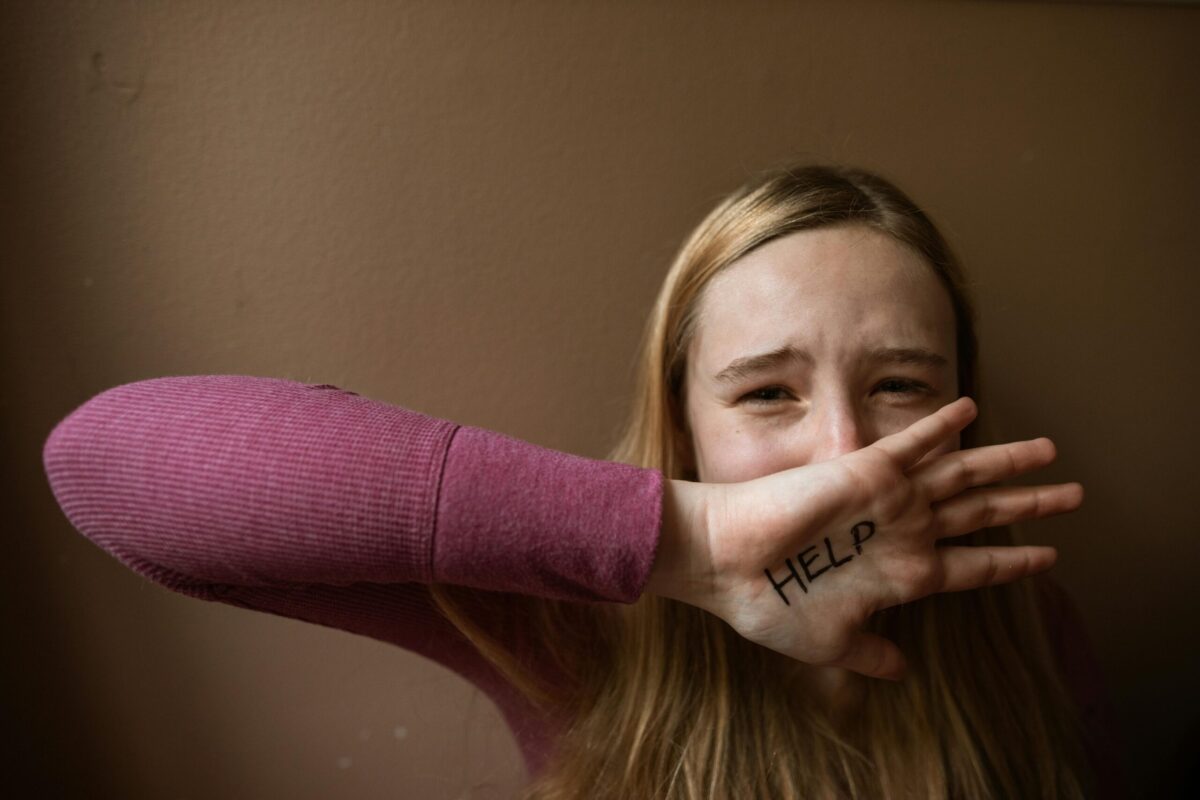People living with post-traumatic stress disorder (PTSD) often experience symptoms, such as vivid flashbacks and nightmares. Unsettling dreams can disrupt rest, increase anxiety, and make recovery from traumatic events even more overwhelming. Understanding the link between PTSD and sleep problems and addressing them simultaneously can help you find relief. With support and care, you can reclaim control over your life and stop past experiences from impacting your future.
What is the Connection Between PTSD and Sleep Problems?
The connection between PTSD and sleep problems is complex but well investigated and documented. Does PTSD cause sleep problems? In short, yes. Sleep disruption is one of the hallmark symptoms of post-traumatic stress disorder. They’re not only a consequence of PTSD but also its perpetuator.
Experiencing trauma changes the brain’s ability to regulate emotions, stress responses, and even sleep patterns. Normally, sleep cycles help the brain process memories and restore balance. Struggling with post-traumatic stress disorder disrupts this natural sleep rhythm. Numerous problems can take place, including insomnia, fragmented sleep, or recurring nightmares.
Hyperarousal is the key element in this process. People with PTSD often remain stuck in a state of alertness, even long after the traumatic event. It is as if their body is constantly prepared for danger. This state fuels stress hormones like cortisol and adrenaline, which further interfere with otherwise deep, restorative sleep. Nightmares are another typical problem for people with PTSD. The brain repeatedly revisits traumatic memories that reinforce the stress and fear.

Common Sleep Problems Linked to PTSD
Those who are struggling with PTSD and sleep problems experience numerous sleep disturbances. As trauma can disrupt nearly every stage of rest, there are various challenges related to sleep that impact your overall well-being. Some of the most common sleep problems are:
- Nightmares: Those are vivid, recurring dreams that often replay traumatic events and trigger an array of negative emotions.
- Insomnia: Racing thoughts, hypervigilance, or anxiety before going to bed often lead to difficulties falling or staying asleep.
- Frequent waking up: Poor quality of sleep prevents the body from getting sufficient rest, often leading to frequent waking up and fragmented sleep.
- Night terrors: These are intense fear episodes that can make you wake up screaming or being otherwise physically agitated.
- Night flashbacks: In a dream-like or half-awake state, you are reliving your trauma, which can leave you disoriented and frightened.
Any of these sleep disruptions creates a cycle in which falling asleep and staying awake are both becoming a struggle. If not addressed, this cycle creates challenges for daily life, affecting work, relationships, and your recovery efforts.
Why Nightmares Happen with PTSD
Nightmares are one of the most distressing aspects of PTSD and sleep problems. Oftentimes, they replay traumatic memories, making the brain revisit painful events in vivid and unsettling ways. During the REM phase of sleep, the brain is highly active when it comes to memory processing and motion regulation. This mechanism can malfunction in people with PTSD. Instead of integrating memories, their brain can be stuck in a loop of reliving the traumatic event.
Nightmares are more than just bad dreams. They’re emotionally intense, realistic, and distressing. They can also trigger strong physical responses, including sweating, rapid heartbeat, or waking up in fear. It is believed that trauma overwhelms the brain´s natural mechanisms. Instead of organizing past experiences, the brain treats them as a current threat.
This inability to consolidate memories and emotions is frequently observed by mood disorder treatment centers. They are trying to help their clients overcome intense and overwhelming emotions and their impact on sleep patterns.

How Nightmares Affect Daily Life
As nightmares happen at night, many assume they stay confined to them. However, the effects of nightmares are carried into nearly every aspect of daily life. They are a barrier to emotional stability, meaningful connections, and professional growth. PTSD and sleep problems create daytime fatigue, concentration issues, and, consequently, a decrease in productivity. The lack of energy can also impact social life and the quality of relationships.
Heightened anxiety and irritability are also common. Constant exhaustion reduces emotional resilience, making you sensitive to even minor stressors. Not only did you have less energy for your loved ones, but conflicts may arise, making you feel even more alone and isolated. You might start dreading sleep itself, try to avoid it, which only deepens exhaustion and worsens your symptoms.
Many mental health services in Massachusetts surrounding sleep problems point out that this issue is recognized and there are efforts to address it. Turning to professionals and incorporating a few strategies to manage sleep disturbances can help you reclaim control over your sleep and rest.
Coping strategies for PTSD nightmares
You can try addressing PTSD and sleep problems alone, as many strategies can help you out and offer some relief. Healthy routines and mindfulness can introduce small, consistent changes that, over time, build a meaningful difference and provide you with some emotional stability.
- Good sleep hygiene: Maintain a consistent bedtime routine. Go to bed and wake up at the same time. Keep up that routine even during weekends.
- Stress reduction before bed: Create a bedtime routine. Listen to relaxing music, journal, or read. Meditation can also ease intrusive thoughts and nighttime anxiety.
- Stimulants avoidance: Limit caffeine, nicotine, and alcohol before bed. These substances can disrupt natural sleep cycles and increase the likelihood of having vivid dreams.
These simple efforts can be helpful, but if they are insufficient and you continue to struggle, you can turn to professionals for help. There are several treatment approaches that can help you.

Treatments That Can Help
An effective treatment for PTSD and sleep problems ought to address both the trauma and the resulting sleep issues. There are several highly efficient approaches to addressing these problems:
- Cognitive Behavioral Therapy for Insomnia (CBT-I): CBT is a structured program that challenges unhelpful thoughts and helps establish healthier thought patterns. CBT-I, in particular, deals with thought patterns related to trauma and sleep habits.
- Imagery Rehearsal Therapy (rewriting nightmares): This approach teaches you to rewrite recurring nightmares with less distressing outcomes. This retrains memories that appear during sleep.
- Trauma-focused therapy (like EMDR): EMDR targets traumatic memories that fuel nightmares and reduces their intensity over time.
- Medication: When necessary, doctors can prescribe an SSRI or prazosin, as studies have shown they can be effective.
But, what is the best treatment for PTSD nightmares?
Different people will prefer different approaches, and sometimes a combination is the best solution. Those with busy schedules or mobility issues will benefit from online PTSD therapy. Others might turn to the community and seek out peer support groups. A professional can advise you on the course of treatment that would make the most sense for you.
Supporting Someone with PTSD-related Sleep Problems
Supporting a loved one when they struggle with mental health and face issues such as PTSD and sleep problems requires patience, compassion, and understanding. Sometimes, all that a person needs is a listening ear, a conversation without judgment, and a promise to stay around when things become difficult. Gentle reminders that they are not alone, emotional support, and a few practical efforts can go a long way.
As a family member or a partner, you can work on creating a safe space at home, maintaining consistent routines, and reducing what can cause sleep disturbances. Educating yourself about PTSD would help you understand your partner better and would foster empathy and strengthen your relationship. You can also encourage them to seek professional help or medical treatment if things become unbearable. Options like therapy, support groups, or a mental health day program provide structured care and guidance without requiring full-time hospitalization. Combined efforts of social networks, community, and professionals help the individual move towards better rest and healing. No one should go through recovery alone.

Healing From PTSD and Sleep Problems
PTSD and sleep problems are deeply connected, and nightmares are often one of the most painful reminders of past trauma. While these experiences can feel overwhelming, they do not have to define your nights – or your life. With the right combination of coping strategies, professional care, and compassionate support, it is possible to restore balance, improve sleep, and move forward in recovery.
Whether you explore therapy, join a support group, or reach out to specialized treatment programs, remember that you don’t have to face PTSD and nightmares on your own. Healing takes time, but every small step matters. By addressing both trauma and sleep challenges together, you can reclaim rest, strengthen resilience, and take back control of your future.



